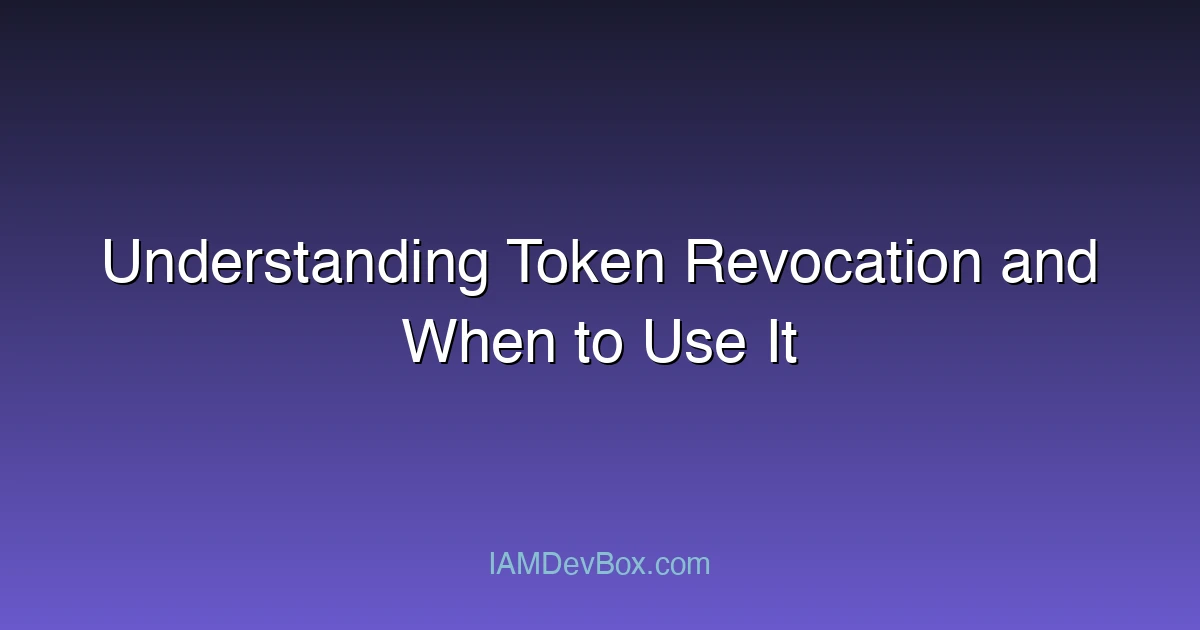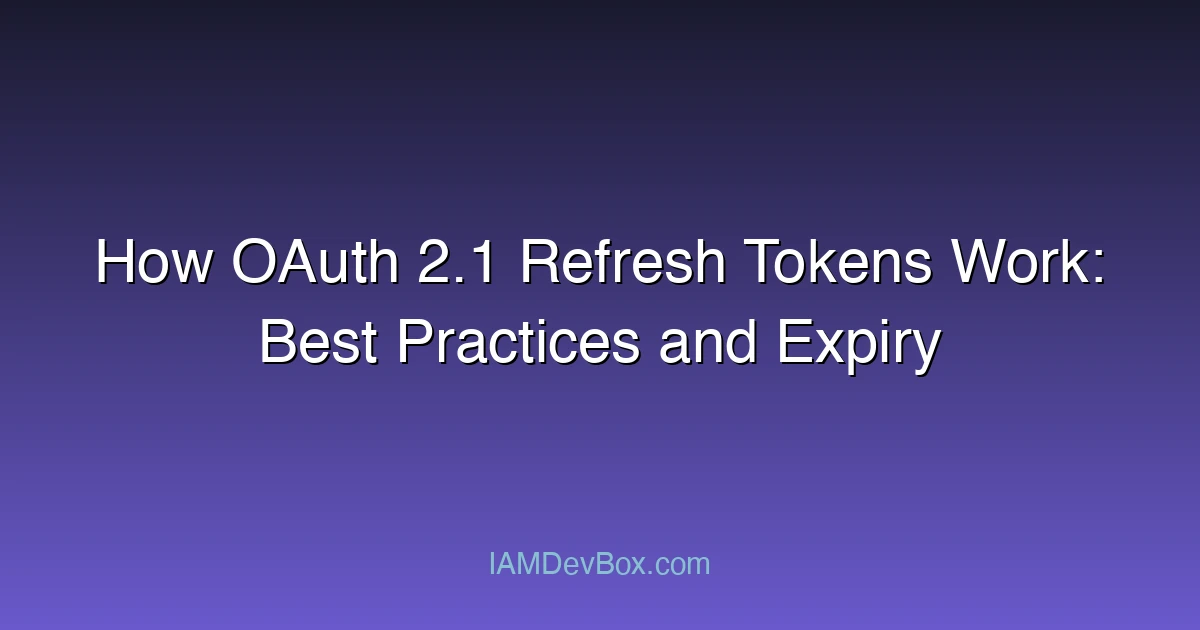
Understanding Token Revocation and When to Use It
Visual Overview: sequenceDiagram participant App as Client Application participant AuthServer as Authorization Server participant Resource as Resource Server App->>AuthServer: 1. Client Credentials (client_id + secret) AuthServer->>AuthServer: 2. Validate Credentials AuthServer->>App: 3. Access Token App->>Resource: 4. API Request with Token Resource->>App: 5. Protected Resource Token revocation is a critical security feature in OAuth 2.0 that allows clients or authorization servers to invalidate access or refresh tokens before their natural expiration. This capability enhances control over user sessions and reduces risks in compromised environments. ...
